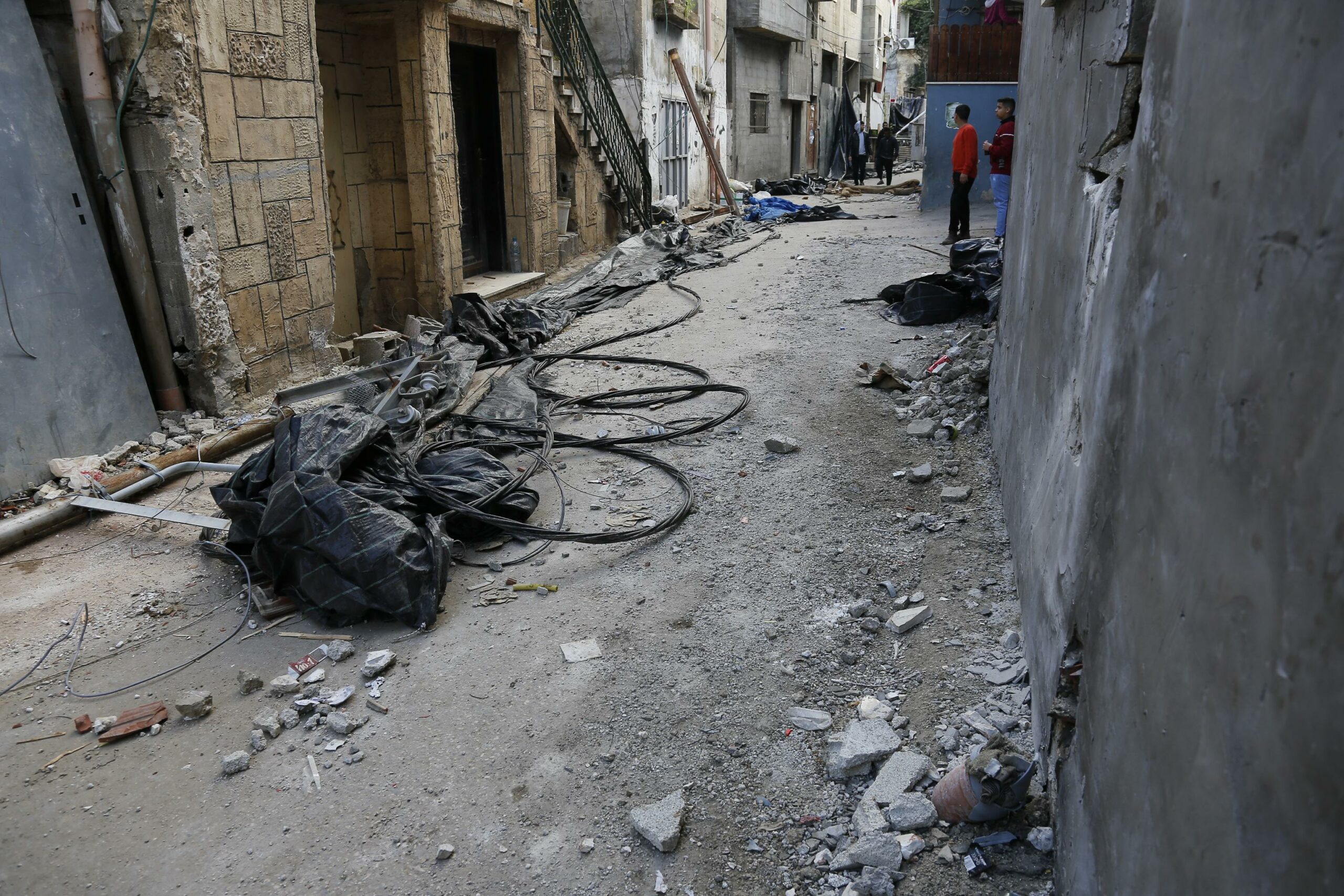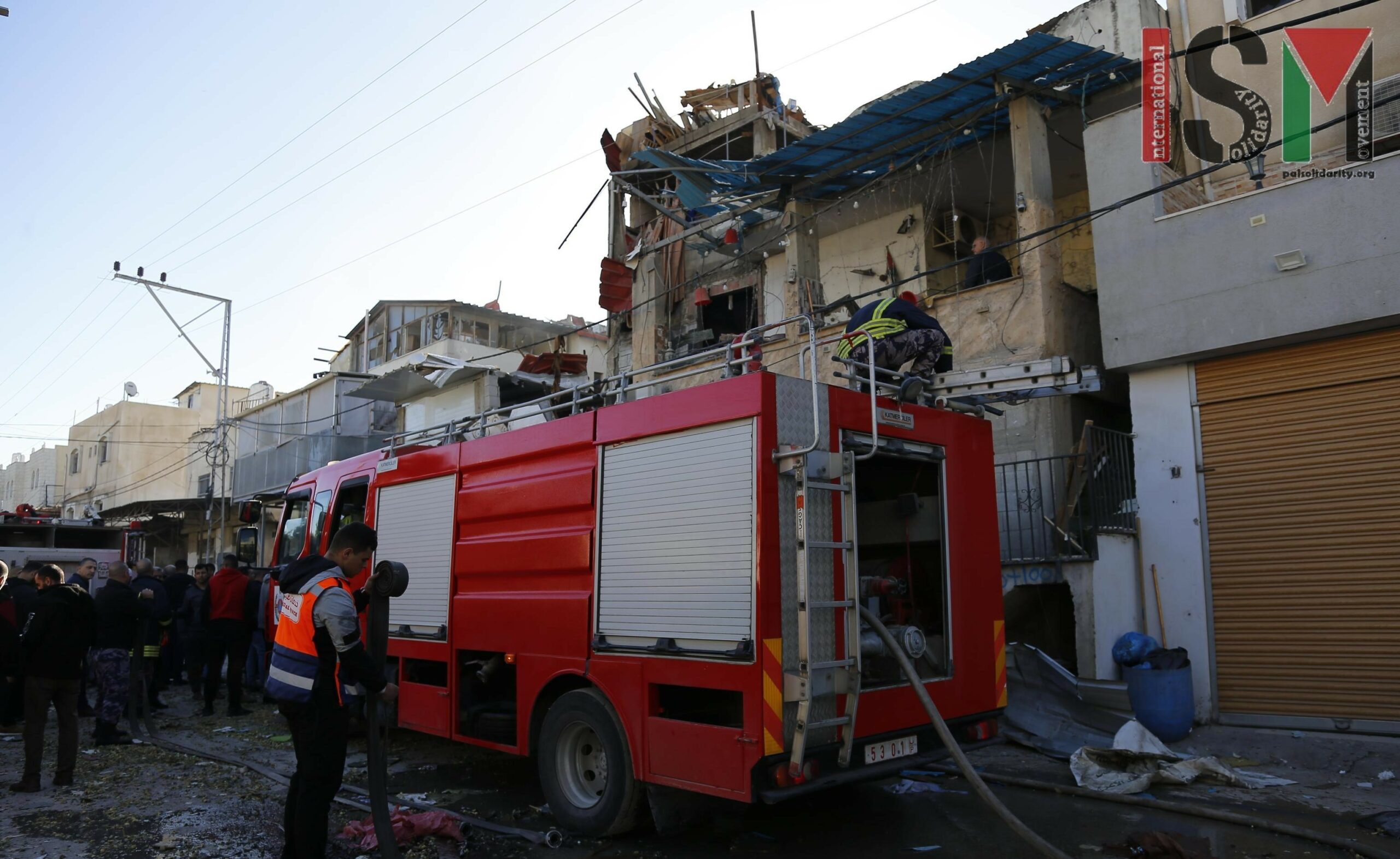-
Remembrance in Nablus
In an age of disinformation, spectacle, and erasure, remembrance is revolutionary. Palestine has a rich 20,000 year history. Amid an ongoing catastrophe in the Holy Land that rivals the nakba in 1948, people in Nablus are keepers of memory.
-
Ongoing Israeli incursion: Nour Shams Refugee Camp
12/27/2023 Occupied West Bank By Diana Khwaelid A new Israeli incursion into the Nour Shams refugee camp northeast of the city of Tulkarm in the northern West Bank. Israeli incursion: Tuesday evening, December 26th the Israeli occupying forces stormed the Nour Shams camp in Tulkarm, accompanied by military vehicles, including D9 bulldozers, unmanned aerial vehicles, […]
-
Nur Shams Refugee Camp – An Unbreakable Will
By Diana Khwaelid We witness an unbreakable will in the Nour Shams refugee camp, located north-east in the city of Tulkarem, despite being subjected to more than 10 incursions, killings, arrests, destruction of roads and other infrastructure, shelling, and burning of houses and shops. Storming the Nour Shams camp On the evening of Monday December […]
Action Alert An Nabi Saleh Apartheid Wall Arrests BDS Bethlehem Bil'in Cast Lead Demonstration Denial of Entry Ethnic Cleansing Farmers Gaza Global Actions Hebron House Demolition International law Israeli Army Jerusalem Live Ammunition Nablus Ni'lin Prisoner Ramallah Rubber-coated steel bullets Settlement Settlers Settler violence Tear-Gas Canister Video



